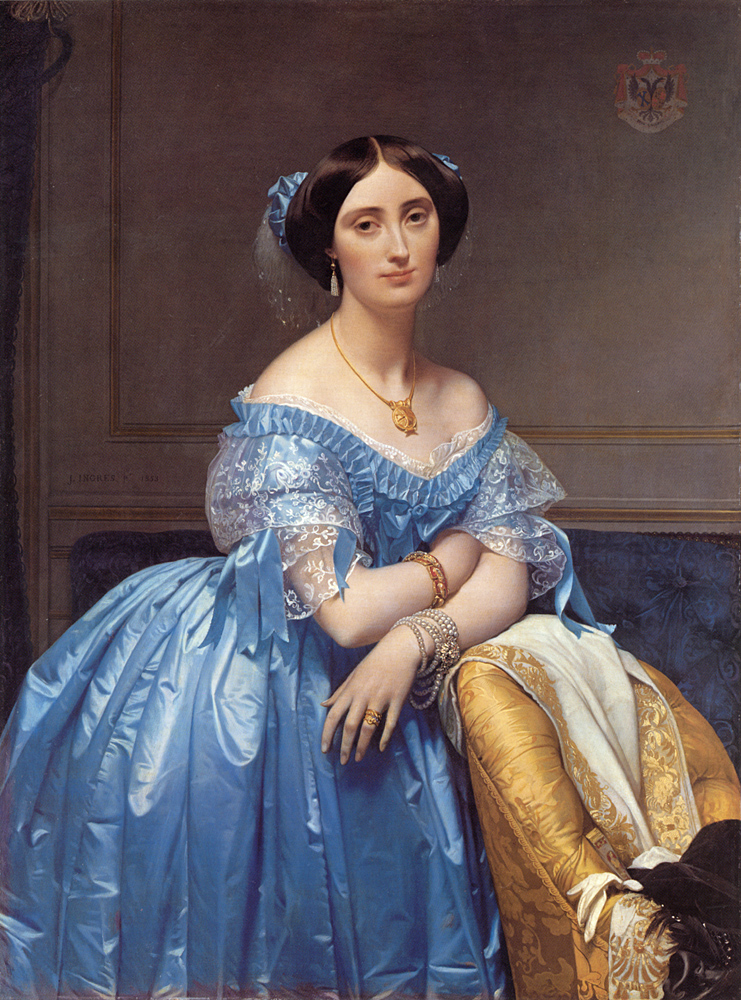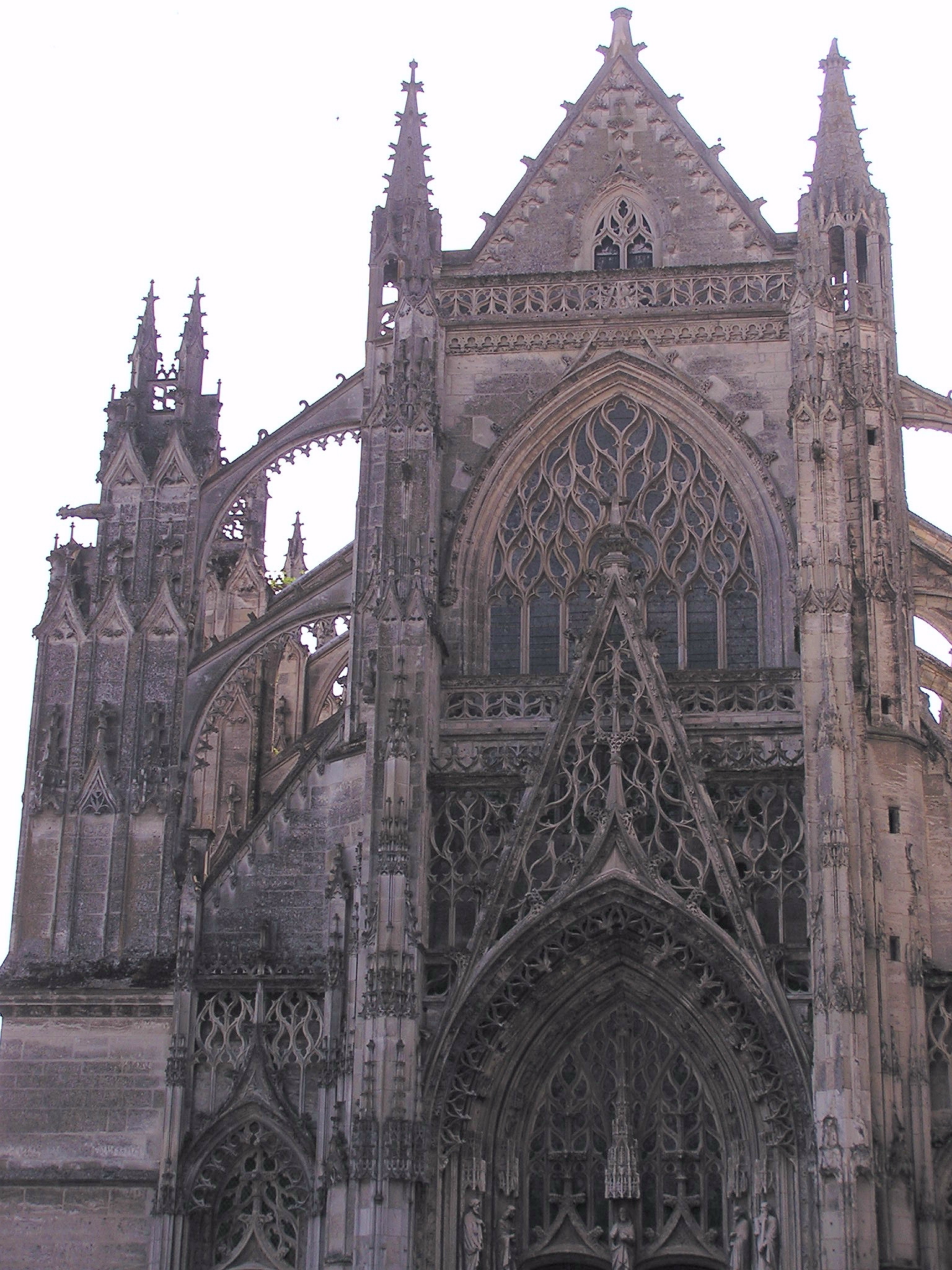|
Joachim Joseph André Murat
Joachim Joseph André Murat (12 December 1828 – 13 March 1904) was a French politician who served as deputy for Lot from 1854 to 1889 during the Second French Empire and the French Third Republic. Birth and family Joachim Joseph André Murat, Count Murat, was born on 12 December 1828 in Paris. His parents were Pierre Gaétan Murat (1798–1847) and Marie Pauline de Méneval (1810–1889). He was the grand nephew of Napoleon's marshal and brother in law Joachim Murat, the King of Naples. On 17 November 1854 he married Blanche Alix Marion (c. 1835–1864). They had two children, Jeanne Pauline Caroline and Joachim. On 11 October 1866 he married Marguerite Barrot (1844–1937). He second wife was the daughter of the senator Adolphe Barrot. They had two children, Clothilde and Napoléone Louise Eugénie. Diplomat After the February Revolution of 1848 Murat became a diplomat. He was attached to the mission of Alexandre Colonna-Walewski in Florence in 1849, and was acting Frenc ... [...More Info...] [...Related Items...] OR: [Wikipedia] [Google] [Baidu] |
Labastide-Murat
Labastide-Murat (), formerly Labastide-Fortunière (Lengadocian: ''La Bastida Fortunièra''), is a former Communes of France, commune in the Lot (department), Lot Departments of France, department in south-western France. On 1 January 2016, it was merged into the new commune of Cœur de Causse. 30 October 2015 It was renamed after Napoleon Bonaparte's brother in law and famed Marshal of France Joachim Murat, who was born there in 1767. See also *Communes of the Lot departmentReferences Former communes of Lot (department), Labastidemurat {{Lot-geo-stub ...[...More Info...] [...Related Items...] OR: [Wikipedia] [Google] [Baidu] |
Corps Législatif
The was a part of the French legislature during the French Revolution and beyond. It is also the generic French term used to refer to any legislative body. History The Constitution of the Year I foresaw the need for a ''corps législatif''. During the period of the French Directory, beginning in 1795, the ''Corps législatif'' referred to the bicameral legislature of the ''Conseil des Cinq-Cents'' (Council of Five Hundred) and the ''Conseil des Anciens'' (Council of Ancients). Later, under Napoleon's Consulate, the Constitution of the Year VIII (1799) set up a ''Corps législatif'' as the law-making body of the three-part government apparatus (alongside the Tribunat and the Sénat Conservateur). This body replaced the Conseil des Cinq-Cents, established by the Constitution of the Year III of the Directory period as the lower house of the French legislature, but its role consisted solely of voting on laws deliberated before the Tribunat. The Constitution of the Year X contin ... [...More Info...] [...Related Items...] OR: [Wikipedia] [Google] [Baidu] |
Copenhagen
Copenhagen ( or .; da, København ) is the capital and most populous city of Denmark, with a proper population of around 815.000 in the last quarter of 2022; and some 1.370,000 in the urban area; and the wider Copenhagen metropolitan area has 2,057,142 people. Copenhagen is on the islands of Zealand and Amager, separated from Malmö, Sweden, by the Øresund strait. The Øresund Bridge connects the two cities by rail and road. Originally a Viking fishing village established in the 10th century in the vicinity of what is now Gammel Strand, Copenhagen became the capital of Denmark in the early 15th century. Beginning in the 17th century, it consolidated its position as a regional centre of power with its institutions, defences, and armed forces. During the Renaissance the city served as the de facto capital of the Kalmar Union, being the seat of monarchy, governing the majority of the present day Nordic region in a personal union with Sweden and Norway ruled by the Danis ... [...More Info...] [...Related Items...] OR: [Wikipedia] [Google] [Baidu] |
Georges Ernest Boulanger
Georges Ernest Jean-Marie Boulanger (29 April 1837 – 30 September 1891), nicknamed Général Revanche ("General Revenge"), was a French general and politician. An enormously popular public figure during the second decade of the Third Republic, he won multiple elections. At the zenith of his popularity in January 1889, he was feared to be powerful enough to establish himself as dictator. His base of support was the working districts of Paris and other cities, plus rural traditionalist Catholics and royalists. He promoted an aggressive nationalism, known as revanchism, which opposed Germany and called for the defeat of the Franco-Prussian War (1870–71) to be avenged. The elections of September 1889 marked a decisive defeat for the Boulangists. Changes in the electoral laws prevented Boulanger from running in multiple constituencies and the aggressive opposition of the established government, combined with Boulanger's self-imposed exile, contributed to a rapid decline of t ... [...More Info...] [...Related Items...] OR: [Wikipedia] [Google] [Baidu] |
Lisbonne Law
The Law on the Freedom of the Press of 29 July 1881 (french: Loi sur la liberté de la presse du 29 juillet 1881), often called the Press Law of 1881 or the Lisbonne Law after its rapporteur, Eugène Lisbonne, is a law that defines the freedoms and responsibilities of the media and publishers in France. It provides a legal framework for publications and regulates the display of advertisements on public roads. Although it has been amended several times since its enactment, it remains in force to the present day. It is often regarded as the foundational legal statement on freedom of the press and freedom of speech in France, inspired by Article 11 of the Declaration of the Rights of Man and of the Citizen of 26 August 1789. At the same time, the law imposes legal obligations on publishers and criminalises certain specific behaviours (called "press offences"), particularly concerning defamation. History The Press Law was passed under the French Third Republic in 1881 by the then-d ... [...More Info...] [...Related Items...] OR: [Wikipedia] [Google] [Baidu] |
Ligue Des Patriotes
The League of Patriots (french: Ligue des Patriotes) was a French far-right league, founded in 1882 by the nationalist poet Paul Déroulède, historian Henri Martin and politician Félix Faure. The Ligue began as a non-partisan nationalist league, supported among others by writer Victor Hugo, calling for ' revanche' (revenge for the French defeat during the Franco-Prussian War) against the German Empire. One of the original purposes of the Ligue was to offer pre-military training, allowing members to participate in gymnastics and rifle shooting. History The league was formed with Léon Gambetta's blessing; Gambetta's education ministry included Déroulède in its Military Education Commission, which was also formed in 1882. However, during the Boulanger affair, Déroulède co-opted the Ligue to support the general, alienating many Republican members. After Boulanger's exile in 1889, the Ligue was suppressed by the government. Upon the discovery that Victoria, the future ... [...More Info...] [...Related Items...] OR: [Wikipedia] [Google] [Baidu] |
Albert, 4th Duc De Broglie
Jacques-Victor-Albert, 4th duc de Broglie (; 13 June 182119 January 1901) was a French monarchist politician, diplomat and writer (of historical works and translations). Broglie twice served as Prime Minister of France, first from May 1873 to May 1874, and again from May to November 1877. Biography Albert de Broglie was born in Paris, France, the eldest son of Victor, 3rd duc de Broglie, a liberal statesman of the July Monarchy, and Albertine, baroness Staël von Holstein, the fourth child of Madame de Staël. He was therefore the great-grandson of Jacques Necker. After a brief diplomatic career at Madrid and Rome, upon the revolution of 1848 Albert de Broglie withdrew from public life and devoted himself to literature. He had already published a translation of the religious system of Leibniz (1846). He now at once made his mark by his contributions to the ''Revue des deux mondes'' and the Orleanist and clerical organ '. These, and other contributions, brought him the ... [...More Info...] [...Related Items...] OR: [Wikipedia] [Google] [Baidu] |
Adolphe Thiers
Marie Joseph Louis Adolphe Thiers ( , ; 15 April 17973 September 1877) was a French statesman and historian. He was the second elected President of France and first President of the French Third Republic. Thiers was a key figure in the July Revolution of 1830, which overthrew King Charles X in favor of the more liberal King Louis Philippe, and the French Revolution of 1848, which overthrew the House of Orléans, Orléans monarchy and established the Second French Republic. He served as a prime minister in 1836 and 1840, dedicated the Arc de Triomphe, and arranged the return to France of the remains of Napoleon from Saint-Helena. He was first a supporter, then a vocal opponent of Louis-Napoléon Bonaparte (who served from 1848 to 1852 as President of the Second Republic and then reigned as Emperor Napoleon III from 1852 to 1871). When Napoleon III seized power, Thiers was arrested and briefly expelled from France. He then returned and became an opponent of the government. Followi ... [...More Info...] [...Related Items...] OR: [Wikipedia] [Google] [Baidu] |
Vendôme Column
Vendôme (, ) is a subprefecture of the department of Loir-et-Cher, France. It is also the department's third-biggest commune with 15,856 inhabitants (2019). It is one of the main towns along the river Loir. The river divides itself at the entrance of Vendôme, intersecting it into numerous different arms. The town has a rich medieval history and many historical monuments. History Vendôme (in la, Vindocinum) appears originally to have been a Gallic , replaced later by a feudal castle, around which the modern town arose. Christianity was introduced by in the 5th century, and the important abbey of the Trinity (which claimed to possess a tear shed by Jesus at the tomb of Lazarus) was founded about 1030. When the reign of the House of Capet began, Vendôme formed the chief town of a county belonging to Bouchard, called "the Venerable", who died in the monastery of in 1007. The succession passed by various marriages to the houses of , and . Bouchard VI, Count of Vendôme ... [...More Info...] [...Related Items...] OR: [Wikipedia] [Google] [Baidu] |
Napoleon III
Napoleon III (Charles Louis Napoléon Bonaparte; 20 April 18089 January 1873) was the first President of France (as Louis-Napoléon Bonaparte) from 1848 to 1852 and the last monarch of France as Emperor of the French from 1852 to 1870. A nephew of Napoleon I, he was the last monarch to rule over France. Elected to the presidency of the Second Republic in 1848, he seized power by force in 1851, when he could not constitutionally be reelected; he later proclaimed himself Emperor of the French. He founded the Second Empire, reigning until the defeat of the French Army and his capture by Prussia and its allies at the Battle of Sedan in 1870. Napoleon III was a popular monarch who oversaw the modernization of the French economy and filled Paris with new boulevards and parks. He expanded the French overseas empire, made the French merchant navy the second largest in the world, and engaged in the Second Italian War of Independence as well as the disastrous Franco-Prussian War, dur ... [...More Info...] [...Related Items...] OR: [Wikipedia] [Google] [Baidu] |
Appel Au Peuple
The Appel au peuple (Plebiscite) was a Bonapartist parliamentary group during the early years of the French Third Republic. They advocated a plebiscite by which the people would choose the form of government, which they assumed would be a revival of the Second French Empire. They were a significant force in the 1870s and 1880s They were associated with Boulangism and the right-wing Ligue des Patriotes. There was a brief revival of the Appel au peuple in the 1900s. Although the members supported universal suffrage, believed in advancement based on merit rather than birth, and had diverse views on other subjects, they were generally conservative. Many of them believed in the virtues of family, religion, free trade and private property. Foundation "''Appel au Peuple''" was the slogan of the Bonapartist party. The Nantes shipowner Alphonse-Alfred Haentjens founded the Appel au Peuple parliamentary group late in 1871 to restore the Second Empire's ideals of democratic imperialism ... [...More Info...] [...Related Items...] OR: [Wikipedia] [Google] [Baidu] |



.jpg)

